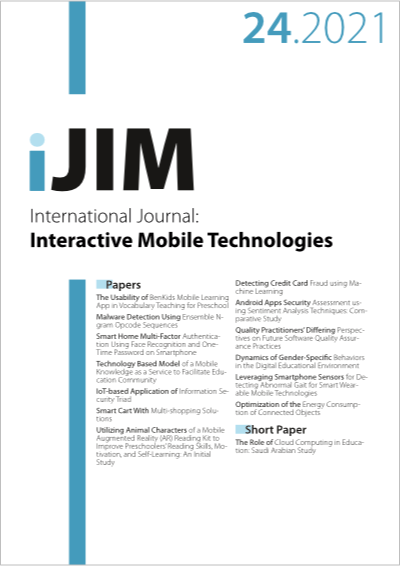Android Apps Security Assessment using Sentiment Analysis Techniques: Comparative Study
DOI:
https://doi.org/10.3991/ijim.v15i24.27359Abstract
Considering that application security is an important aspect, especially nowadays with the increase in technology and the number of fraudsters. It should be noted that determining the security of an application is a difficult task, especially since most fraudsters have become skilled and professional at manipulating people and stealing their sensitive data. Therefore, we pay attention to trying to spot insecurity apps, by analyzing user feedback on the Google Play platform and using sentiment analysis to determine the apps level of security. As it is known, user reviews reflect their experiments and experiences in addition to their feelings and satisfaction with the application or not. But unfortunately, not all of these reviews are real, and as is known, the fake reviews do not reflect the sincerity of feelings, so we have been keen in our work to filter the reviews to be the result is accurate and correct. This study is useful for both users wanting to install android apps and for developers interested in app optimization.
Downloads
Published
How to Cite
Issue
Section
License
Copyright (c) 2021 Abeer Aljumah, Amjad Altuwijri, Thekra Alsuhaibani, Afef Selmi, Nada Alruhaily

This work is licensed under a Creative Commons Attribution 4.0 International License.


